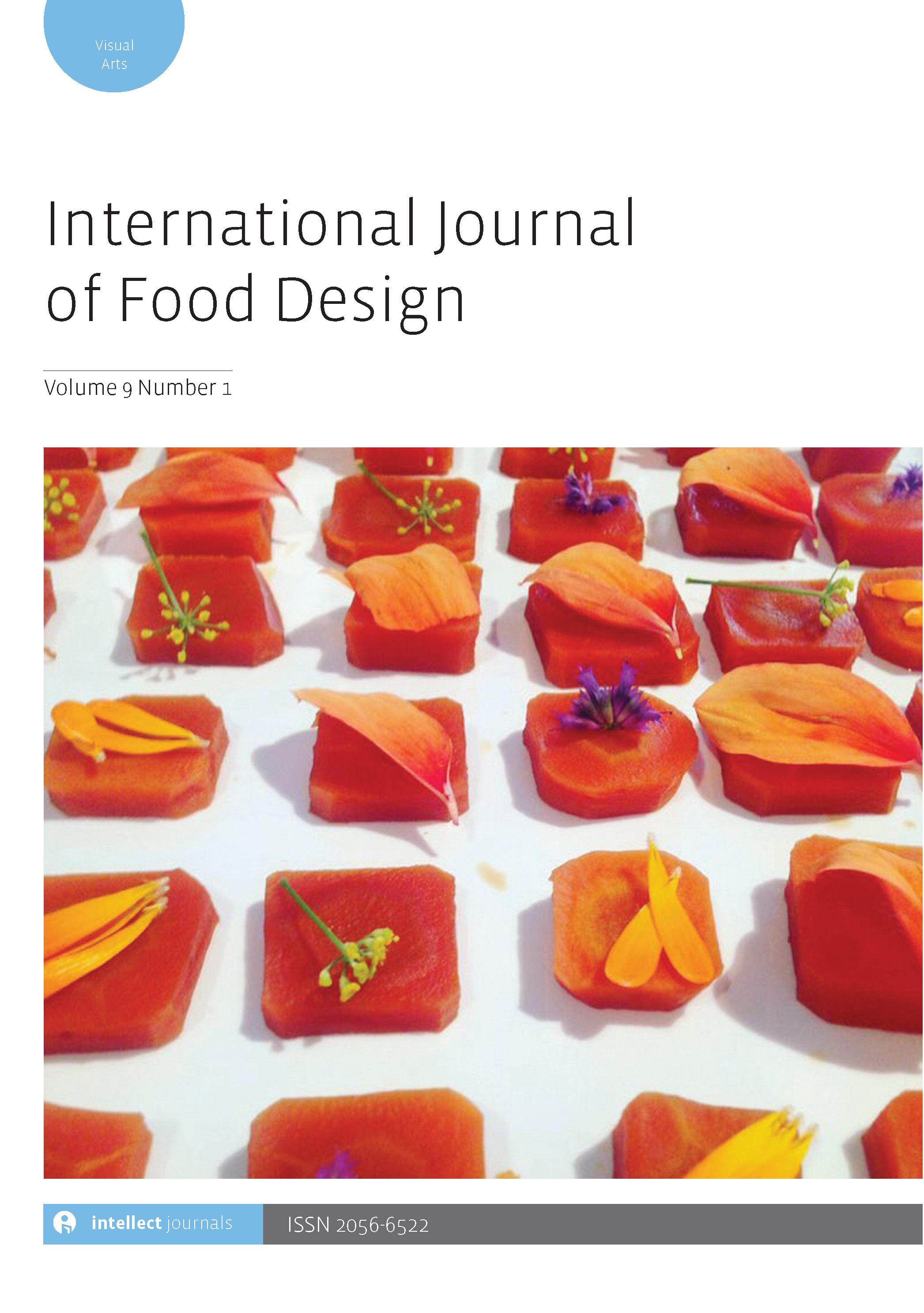-
oa Rethinking food well-being as reconciliation between pleasure and sustainability
- Source: International Journal of Food Design, Volume 5, Issue 1-2: Creative Tastebuds 2020, Dec 2020, p. 157 - 166
-
- 15 Jun 2020
- 27 Oct 2020
- 01 Dec 2020
Abstract
Food well-being has been addressed in consumer research over the past decade as a means to provide a more holistic perspective on consumers’ relationship to food. However, the interest has mainly been directed at individual choice and experience, meaning that the ethical foundations of well-being have received less attention. This foundation is important in the context of food as it provides an opportunity for outlining a new agenda for food well-being. Using food design as an overall framework, this article introduces Epicurean ethics as an underlying conceptual design that positions pleasure at the core of food well-being. Not in the sense of trivial hedonism, but as judicious consideration of what is pleasurable when individual and collective interest is weighed and short- and long-term consequences taken into account.



